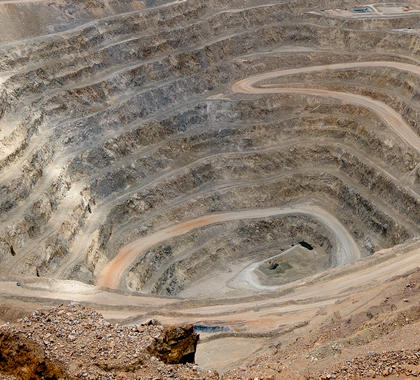Russia’s invasion of Ukraine should serve as a stark reminder that natural resource competition has both started and influenced wars for centuries. Today’s global crisis highlights that mineral and energy dependence is a major vulnerability to our economy, limits our political influence, and risks our ability to protect our, and our allies’, shores. It is time for policymakers to mount a robust response.
There is a sinister threat looming that has not been addressed: the shortfall of critical minerals used for U.S. national defense and military warfighting readiness. These include the metals gallium, arsenic, tungsten, and antimony – just four of the approximately 30+ critical minerals for which the U.S. is import reliant.
In the fog of peace, America has been lulled into a sense of complacency. Most of these commodities urgently needed for the U.S. economy and national security are imported from communist China and Russia, two U.S. adversaries who have demonstrated they will use resource dominance to promote their interests.
For example, gallium and arsenic together form gallium arsenide – the material needed for manufacturing semiconductors, solar cells, and 5G wireless network components. Think chips – those tiny wafers embedded in just about every machine, vehicle, weapon, and surveillance satellite. Two other metals, tungsten and antimony, are used in making all types of munitions and equipment – think bullets and tanks – without which the U.S. cannot properly field its warfighting capabilities. These four metals have no viable replacement or substitute for their unique properties at this time.
According to the U.S. Geological Survey, there has been zero domestic production of tungsten since 2015, and imports to the U.S. are largely from China. Similarly, China and Russia dominate the global antimony market while U.S. domestic mine production of antimony has fallen to zero.
It is time to produce critical minerals domestically, many of which the U.S. has in abundance. America’s bountiful lands have most of the same mineral resources that we are currently importing. Take antimony again, for example, the U.S. has a previously operating antimony mine in central Idaho – known as the Stibnite Mine. During World War II, employees at Stibnite worked non-stop extracting antimony and tungsten to manufacture munitions and military equipment for our troops to ultimately win World War II.
Today, the Stibnite mine site lays dormant, but it still has a world-class antimony resource. A modern plan to restart the mine to produce antimony and gold was proposed by Perpetua Resources back in 2016. The project would significantly reduce our country’s import reliance on China and Russia while restoring the local environment at an abandoned mine site already impacted by 100 years of mining. Antimony is also essential to energy production and storage batteries. Goals we can all agree with and goals which should be viewed by policymakers as a “win-win.”
Despite the project’s merits, it has been waiting for six years for regulatory clearance. This is not a timeline that wins wars or builds economies. Policymakers need to address slow permitting timelines and can do so while upholding rigorous environmental standards. Otherwise, the U.S. will continue to fall behind on the race to develop minerals.
Without reliable supplies of critical minerals, America can neither insulate itself from the impacts of global conflict nor protect our own interests. We may begin to run short of materials that have built and sustained our economic and defense supremacy and those needed for the next wave of critical technology. Quite simply, we cannot be a superpower without modern domestic mining.
Policymakers acknowledge this threat but have yet to respond in a way that will allow for mineral development at a scale that meets the need. Debate and studies won’t help now, not when our import reliance on nations which do not share our interests threatens our republic itself and global stability.
An urgent need to act now to bring our domestic mines to full operation is staring us in the face, but our policymakers in Washington are dithering. When lives and freedom are at stake, the priority of our policymakers must be to become laser-focused on accessing America’s critical minerals for the benefit of its citizens. Otherwise, the U.S. will be enveloped by an even denser fog of war.
First published at Real Clear Energy.
Photo from Getty Images.





